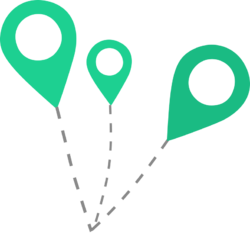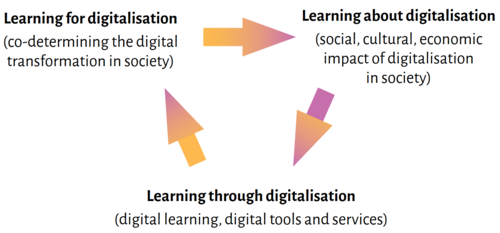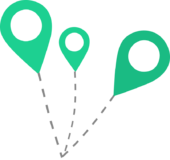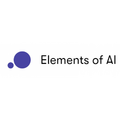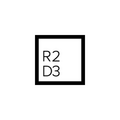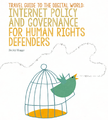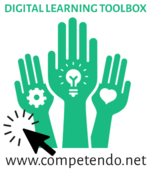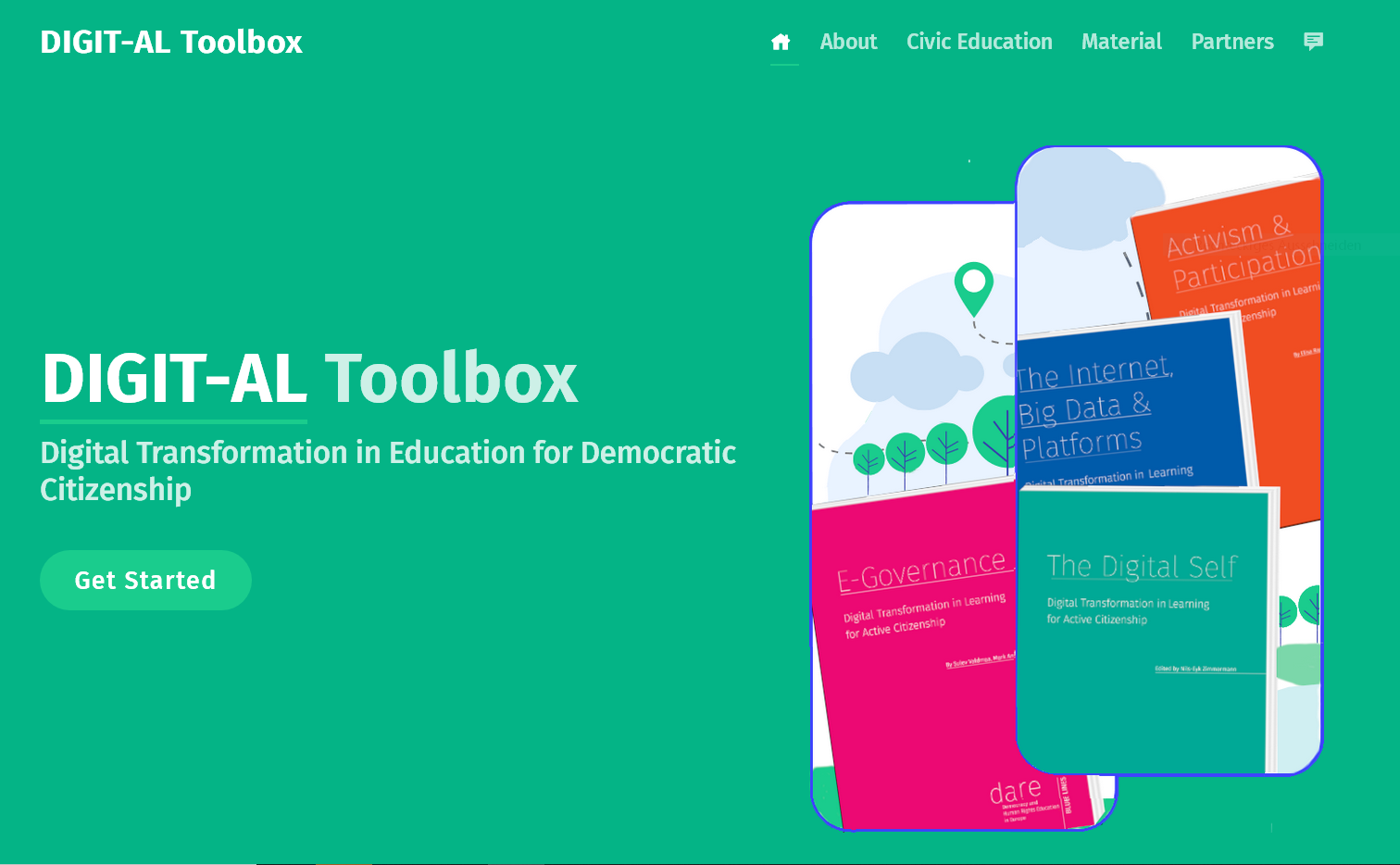Difference between revisions of "Digital@Learning"
m (→Learning About the Digital Transformation) |
m (→Learning About the Digital Transformation) |
||
| Line 75: | Line 75: | ||
<i class="fas fa-glasses"></i> [[Learning for Active Citizenship and Digital Transformation]]<br> | <i class="fas fa-glasses"></i> [[Learning for Active Citizenship and Digital Transformation]]<br> | ||
| + | <i class="fas fa-glasses"></i> [[Activism and Participation in Digital Transformation]]<br> | ||
<i class="fas fa-glasses"></i> [[Artficial Intelligence: Think, Machine!]]<br> | <i class="fas fa-glasses"></i> [[Artficial Intelligence: Think, Machine!]]<br> | ||
| − | |||
| − | |||
| − | |||
<i class="fas fa-glasses"></i> [[Beyond Zero and One: Culture of the Internet, Network Culture]]<br> | <i class="fas fa-glasses"></i> [[Beyond Zero and One: Culture of the Internet, Network Culture]]<br> | ||
| − | |||
<i class="fas fa-glasses"></i> [[Digitalisation and the Environment]]<br> | <i class="fas fa-glasses"></i> [[Digitalisation and the Environment]]<br> | ||
| + | <i class="fas fa-glasses"></i> [[Fake News, Disinformation, Malinformation]]<br> | ||
| + | <i class="fas fa-glasses"></i> [[Into the Internet of Everything]]<br> | ||
| + | <i class="fas fa-glasses"></i> [[Knowledge Society]]<br> | ||
<i class="fas fa-glasses"></i> [[Openness - the Foundation of the Internet]]<br> | <i class="fas fa-glasses"></i> [[Openness - the Foundation of the Internet]]<br> | ||
<i class="fas fa-glasses"></i> [[Public Services under Transformation]]<br> | <i class="fas fa-glasses"></i> [[Public Services under Transformation]]<br> | ||
| + | <i class="fas fa-glasses"></i> [[The Creepy Lines of Digitalisation]]<br> | ||
| + | <i class="fas fa-glasses"></i> [[The Digital Self]]<br> | ||
<i class="fas fa-glasses"></i> [[Trust and Governance of Digitalisation]]<br> | <i class="fas fa-glasses"></i> [[Trust and Governance of Digitalisation]]<br> | ||
| − | <i class="fas fa- | + | <i class="fas fa-cog"></i> [[Email Encryption]]<br> |
| − | <i class="fas fa- | + | <i class="fas fa-cog"></i> [[Privacy Protection]]<br> |
</div> | </div> | ||
Revision as of 23:12, 2 May 2021
Among practitioners using digital tools in education there is a lively debate on the innovative contribution of digital education to pedagogy. Learning processes might be qualitatively poor although integrating technology. Remind all the boring Powerpoint afternoons you experienced once. On the other hand educational processes designed without using new technology might also be experienced as insightful, innovative or really helpful. Think about inspiring facilitators you met, good questions that you were thinking about long after a seminar or class took place, or an interesting text.
Digital and analogue
Digital and analogue are not counterparts. Both are today integral part of our cultural practice. The discussion in education and learning needs rather to focus on the synergies between both than on the (often too constructed) differences between the two forms.
Digital and analogue together open a wide range of new possibilities, such as simplifying things organisationally, being able to respond to special needs, bringing the world into the learning space, stimulating communication and cooperation, or designing learning processes across individual educational offerings that are closed in format.
Concepts like immersion or experiments with augmented reality are illustrating also the huge potential of technology for a new way of cultural expression and perception.
When media and technology are tools like didactic approaches are, then also the question regarding the intended socio-political goals is important. Education needs to explore here the digital transformation from a meta-perspective. The learning "about" digitalisation becomes relevant. From an active citizenship and participation perspective we need to draw attention also to "for" what kind of digital transformation I am pleading.
Holistic Digital Transformation Learning
- Learning for digitalisation: co-determining the digital transformation in society.
- Learning about digitalisation: social, cultural, economic impact of digitalisation in society.
- Learning through digitalisation: digital learning, digital tools and services.
Resources from the Community: Digital & Media Competence
Digital Citizenship Education Handbook
by Council of Europe. Being online. Well-being online. Rights online
DownloadLearning the Digital
Competendo handbook
moreBookmarks
CoE's manual for combating hate speech through human rights education
DownloadMedia Literacy for Global Education
Toolkit for Youth Multipliers by North-South Centre of CoE
DownloadDigComp 2.2: The Digital Competence Framework for Citizens
2022 edition of the EU framework
DownloadDigital Competence of Educators
What has digital competency to do with you as a teacher or educator?
Download'DigCompSat
DigComp 2.1 Self Assessment Tool
DownloadDigital Citizenship Education - Trainers' Pack
The concept of DCE applied in education and learning, published by Council of Europe
DownloadDigComp into Action
A guide on how to make use of the DigComp framework
DownloadFI.DO Training Material
FIghting fake news and DisinfOrmation in a lifelong learning context.
DownloadDIGIT Manifesto and guidelines for adult educators
Boost Competences for responsible online identity
DownloadDigital competence toolbox for youth work
Verke's toolbox includes criteria for digital competences, a self-assessment tool and also an online test.
onlineHuman vs AI Test
Can We Tell the Difference Anymore? By K. Rajnerowicz
OnlineMaker activities in youth work
A reader about maker culture and youth work by Verke
DownloadHandbook Educational Robotics
From the eMedia Project: Media Literacy and Digital Citizenship for All.
DownloadDOIT Toolbox
from the project DOIT - Entrepreneurial skills for young social innovators in an open digital world
OnlineMakerspaces for Education and Training
Exploring future implications for Europe, by JRC
DownloadTech for Good
Possibilities and limits of using digital instruments in international development projects of NGOs
DownloadYour Data Mirror
Learn about the mechanisms of data collection and the impact this practice on society. By Interactive Media Foundation.
onlineHandbook Media Literacy
From the eMedia Project: Media Literacy and Digital Citizenship for All.
DownloadOnline test: filter bubble
interactive introduction by Zentrum fir politesch Bildung (ZpB) Luxemburg
OnlineEU vs. Disinfo
The EU portal on disinformation
onlineOpen your eyes
Handbook: How to identify and tackle online disinformation?
DownloadOpen your eyes
Database: Fake news
OnlineSTEPS -Survival Toolkit for EDC in Post-factual Societies
Texts, studies and methods from the project STEPS DownloadVisual Literacy
How to think and act with images?
DownloadCinema Stories
Working with movies
Read moreFreedom of Press Report
by RSF - Reporters without Borders
OnlineDigtal News Report
by Reuters Institute for the Study of Journalism
Online
Resources from the Community: About Digitalisation
Defining concepts of the digital society
Alexander v. Humboldt Institute for Internet and Society
OnlineBig Data Literacy
Resource collectuion of the Critical Big Data and Algorithmic Literacy Network
OnlineUNESCO Series on Internet Freedom
Publications on enabling a free, open and accessible Internet space as part of promoting comprehensive freedom of expression online and offline.
OnlineElements of AI
Free online course in the European languages, developed by the Finnish EU presidency
OnlineWe are AI
Free online course by the Center for Responsible AI at New York University’s Tandon School of Engineering, Peer 2 Peer University (P2PU) and Queens Public Library
OnlineVisual Introduction in Machine Learning
By Stephanie Yee and Tony Chu in 13 languages.
OnlineWe are AI Comics
Five Comics about AI by Julia Stoyanovich and Falaah Arif Kha
DownloadGlobalPolicy.AI
Online platform for navigating the international AI governance landscape
OnlineTravel Guide to the Digital World
For Human Rights defenders by Global Partners Digital. DownloadFree My Internet
A graphic journey from infrastructure to shutdowns
OnlineMaking sense of the future
by Alexander von Humboldt Institute for Internet and Society (HIIG)
Online & DownloadInternet Universality Indicators
UNESCO's Roam-X-Indicators<
DownloadDigital Transformation in Adult Learning
Project DIGIT-AL (DARE network)
OnlineFreedom of Press Report
by RSF - Reporters without Borders
OnlineDigtal News Report
by Reuters Institute for the Study of Journalism
OnlineFreedom on the Net Report
by Freedom House
Online & DownloadInternet Health Report
by Mozilla Foundation
DownloadInternet Affordability Report
Alliance for Affodable Internet
DownloadWe need to talk AI
Comic about Artificial Intelligence by Doc J Snyder & Lena Ziyal
Download
Also interesting:
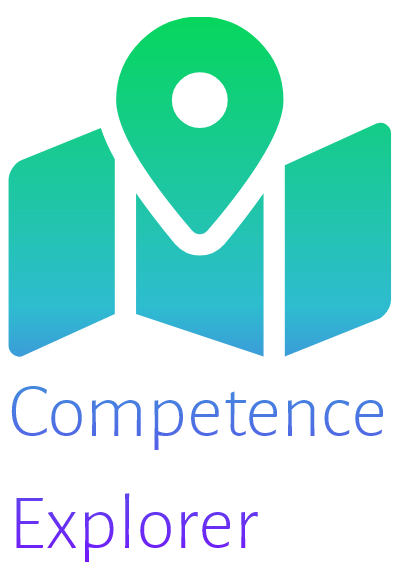 Overview of different competence frameworks relevant to lifelong learning.
Online
Overview of different competence frameworks relevant to lifelong learning.
Online
Download: Banner
